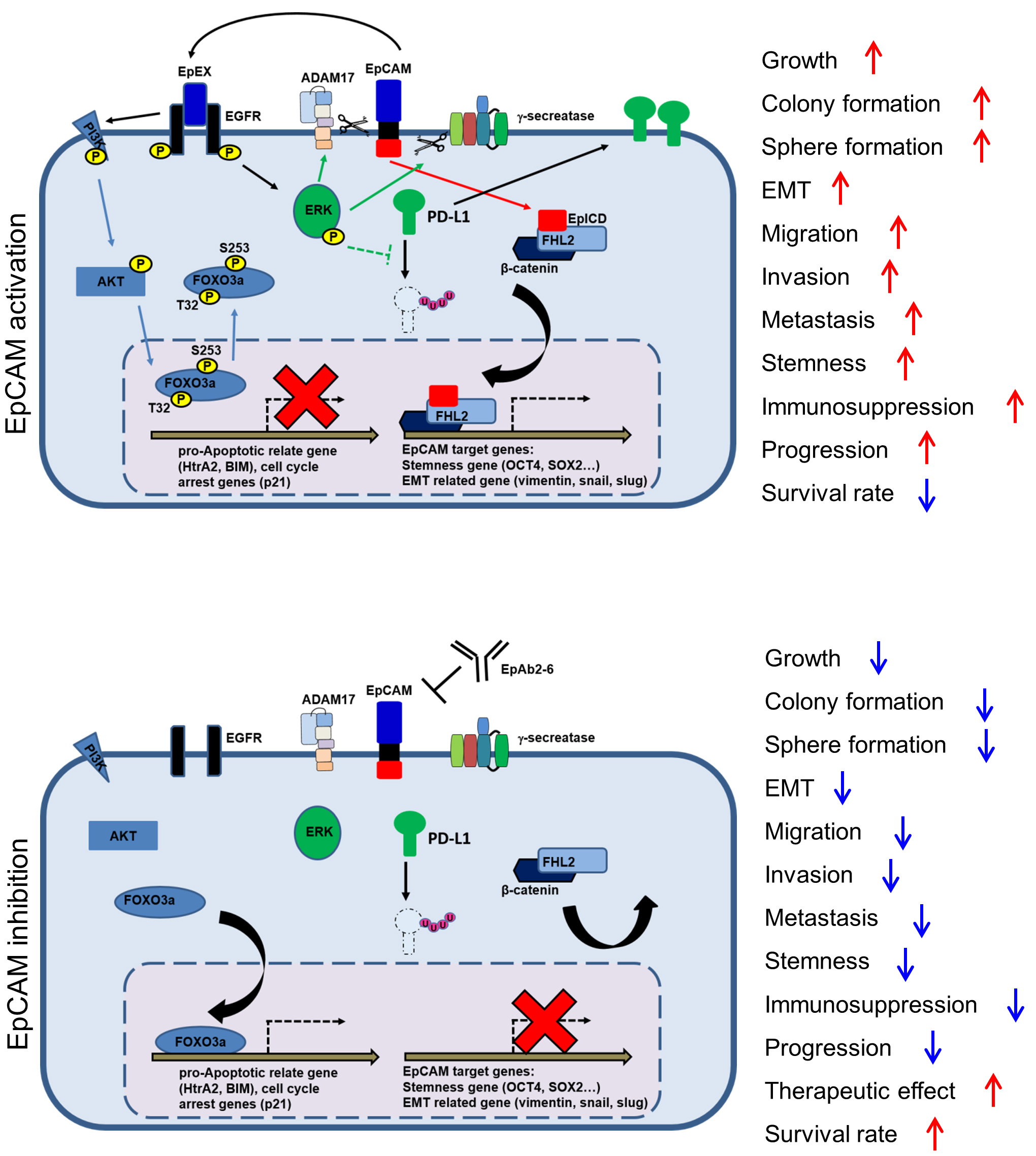EpCAM Signaling Promotes Tumor Progression and Protein Stability of PD-L1 through the EGFR Pathway
- 作者:Hao-Nien Chen, Kang-Hao Liang, Jun-Kai Lai, Chun-Hsin Lan, Mei-Ying Liao, Shao-Hsi Hung, Yi-Ting Chu
- 期刊: Cancer Res. 2020, 80:5035-5050. https://cancerres.aacrjournals.org/content/80/22/5035
Although epithelial cell adhesion molecule (EpCAM) has previously been shown to promote tumor progression, the underlying mechanisms remain largely unknown. Here, we report that the EGF-like domain I within the extracellular domain of EpCAM (EpEX) binds EGFR, activating both AKT and MAPK signaling to inhibit forkhead transcription factor O3a (FOXO3a) function and stabilize PD-L1 protein, respectively. Treatment with the EpCAM neutralizing antibody, EpAb2-6, inhibited AKT and FOXO3a phosphorylation, increased FOXO3a nuclear translocation, and upregulated high temperature requirement A2 (HtrA2) expression to promote apoptosis while decreasing PD-L1 protein levels to enhance the cytotoxic activity of CD8 T cells. In vivo, EpAb2-6 markedly extended survival in mouse metastasis and orthotopic models of human colorectal cancer. The combination of EpAb2-6 with atezolizumab, an anti-PD-L1 antibody, almost completely eliminated tumors. Moreover, the number of CD8 T cells in combination-treated tumors was increased compared with atezolizumab alone. Our findings suggest a new combination strategy for cancer immunotherapy in patients with EpCAM-expressing tumors.++
Significance: This study shows that treatment with an EpCAM neutralizing antibody promotes apoptosis while decreasing PD-L1 protein to enhance cytotoxic activity of CD8 T cells.+
